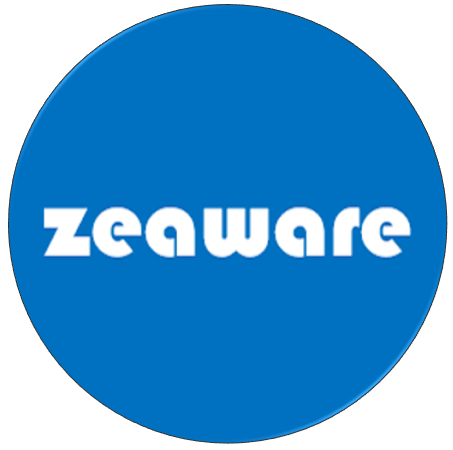Our Top 5 GenAI Implementation Issues
Generative AI (GenAI) is revolutionizing multiple industries by enabling the creation of innovative solutions that were previously considered unattainable. From generating human-like text and images to developing complex data-driven models, GenAI tools are becoming integral to business strategies worldwide. As enterprises increasingly adopt GenAI technologies, it is crucial to address the key implementation issues to fully harness their transformative potential. Understanding and mitigating these challenges will ensure that businesses can achieve seamless integration, maintain compliance, and maximize the benefits of their GenAI investments. To help, we have listed our view of the top 5 Gen AI issues as follows:
#1: Integration with Existing Systems
One of the primary challenges organizations encounter when implementing Generative AI (GenAI) solutions is integrating them with existing systems and workflows. This is particularly complex due to the need for seamless data flow between AI models and enterprise applications such as ERP systems and data warehouses. Ensuring that AI agents can effectively communicate with and enhance existing processes without causing disruptions requires significant effort and technical acumen. The integration process often involves addressing compatibility issues, managing data interoperability, and maintaining data consistency across diverse platforms. These complexities can hinder the full potential of GenAI, making integration a critical issue that requires careful planning and execution.
# 2: Ensuring Governance and Compliance
When deploying Generative AI (GenAI), ensuring strong governance and compliance is crucial. Non-compliance with regulatory standards can lead to significant risks including data privacy issues, legal ramifications, and reputational damage. Robust governance frameworks are essential to mitigate these risks by enforcing policies that ensure ethical AI usage, privacy protection, and adherence to applicable laws and regulations. These frameworks should include continuous monitoring, automated compliance checks, and thorough auditing processes to help maintain accountability and transparency in AI operations.
# 3: Customization and Flexibility
One of the significant challenges in implementing Generative AI (GenAI) is the ability to customize AI processes to meet unique business requirements. Organizations may find that off-the-shelf AI solutions do not fit their specific use cases, necessitating extensive modifications. The need for flexibility in altering AI flows is crucial, especially when tailoring the AI to address unique scenarios and workflows within a business. However, this customization process can pose significant barriers, particularly in terms of required technical expertise and resource allocation. Many companies may lack the in-house skill set needed to adjust complex AI solutions, or they might find the process resource-intensive, leading to delays and increased costs. Ensuring that AI solutions can be easily tailored to fit specific needs without demanding excessive technical knowledge and resources remains a key issue for many enterprises.
# 4: Speed of Deployment
One of the critical challenges organizations face when implementing Generative AI (GenAI) solutions is the speed of deployment. Traditional AI implementation processes often involve extensive coding, rigorous testing, and multiple iterations, making them time-consuming and resource-intensive. This protracted timeline can delay the realization of AI benefits and hinder organizations from staying competitive. Factors such as integration complexities, required expertise, and the need to ensure compliance further contribute to these delays. Swift deployment is essential for businesses aiming to rapidly innovate and respond to market demands.
# 5: Monitoring and Performance Management
In the realm of GenAI deployments, real-time monitoring and performance management are critical to ensuring that AI models operate efficiently and meet expected benchmarks. Continuous oversight allows organizations to identify and resolve issues promptly, thereby maintaining the reliability and accuracy of AI outputs. Performance management is essential not only for tracking the success of AI initiatives but also for facilitating ongoing improvements and adjustments to models based on real-world data and behavior. Without this level of monitoring, enterprises risk facing diminished returns from their AI investments and potentially deploying solutions that fail to meet strategic objectives.
Zeaware Avalon AI Can Help
Implementing GenAI solutions comes with its unique set of challenges, including complexities in deployment, maintaining governance and compliance, customization requirements, integrating with existing infrastructures, and monitoring AI performance in real time. Tackling these issues is crucial for organizations looking to harness the power of AI effectively and responsibly.
Zeaware's Avalon AI provides a comprehensive solution tailored to meet these challenges. With its intuitive low-code platform, Avalon AI accelerates AI deployment, reducing the time and expertise needed to bring AI processes online. The advanced governance features ensure that all AI activities comply with organization requirements, helping to safeguard data and maintaining standards. Furthermore, Avalon AI allows for the creation of highly customizable AI agents that can be easily integrated with your existing systems and workflows, ensuring seamless operation and enhanced productivity. Its capabilities in real-time monitoring offer invaluable insights and facilitate continuous improvement of AI solutions.
To see how Zeaware Avalon AI can assist your organization in overcoming GenAI implementation hurdles, explore more about our capabilities and request a demo today.






